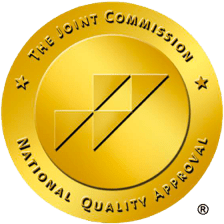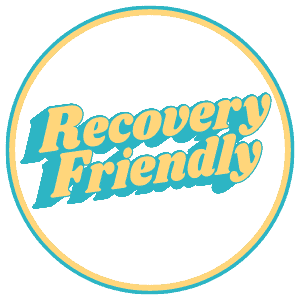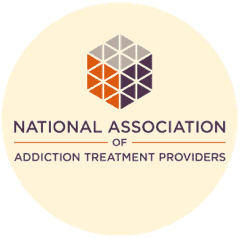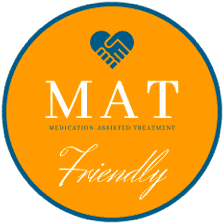Addiction doesn’t happen overnight, and it can affect any individual of any background, age, or economic level. Because of the broad spectrum of people that are affected by addiction, it can be difficult to understand how your loved one ended up with a substance use disorder, or to pinpoint the moment the addiction developed. You might be wondering if you missed any signs or if you could’ve helped earlier. The reality is that it can be extremely difficult to understand the disease of addiction or how to best assist someone who is struggling.
Recognizing the signs of addiction can help you figure out whether your loved one needs professional addiction treatment, and can provide a better understanding of how to connect them with the best resources and treatment options available. We may not know how addiction starts, but we can feel confident in the fact that hope and healing are possible.
Why are Drugs and Alcohol Addictive?
Drugs and alcohol can have powerful effects on the body and brain. Opioids, for example, can be addictive because they dull the body’s pain receptors and boost feelings of pleasure by flooding the brain with endorphins. While opioid users may think they are in control, drug use can quickly progress to drug addiction.
When someone is addicted to a substance, they are constantly seeking the next high, which can be detrimental to the user’s mental and physical health. As the drugs wear off, the user experiences withdrawal symptoms and cravings because the body has become physically dependent on the drugs. Constantly chasing the next high can interfere with the drug user’s ability to function and live a healthy life.
How Do Drug and Alcohol abuse start?
Individuals can encounter drugs and alcohol in a variety of different ways. For some, peer pressure might lead a young person to try cocaine without being aware of certain risk factors, such as a family history of drug use or a predisposition to addictive behaviors. For others, feelings of loneliness and isolation may lead them to abuse substances. We cannot predict how or when an individual may encounter illicit substances, or how they will react. However, we can decide how we will react when a loved one needs support and guidance.
External Factors and Substance Abuse
The first time someone tries a drug like heroin or cocaine, they have no way of knowing how they might react. For some people, a night of spontaneous and casual drug use is enough to send them spiraling into addiction. For others, drug abuse gradually increases over time, eventually becoming an undeniable problem. As the body starts to tolerate a certain drug, the user might turn to other drugs instead.
Stress can also exacerbate one’s risk of addiction. For instance, if someone who drinks alcohol casually starts experiencing higher levels of stress, they may turn to alcohol more frequently to self medicate. The more often someone drinks alcohol to handle stress, the more they will become dependent on alcohol, both emotionally and physically. Additionally, certain mental health disorders, such as post traumatic stress disorder, increase a person’s likelihood of developing substance abuse disorder, which may lead to the need for dual diagnosis treatment later on in their recovery journey.
Alcohol addiction in particular can be especially difficult to spot because alcohol use is so ingrained in society. Young people in particular are often exposed to alcohol in settings where people frequently abuse alcohol without understanding the repercussions. This behavior may lead them to believe that alcohol abuse is normal and commonplace and that they need to drink to excess in order to fit in with their peers.
What Are the Signs of Drug and Alcohol Addiction?
There are numerous warning signs to look out for if you’re concerned your loved one might be struggling with substance use disorder. If you notice the following behaviors, we recommend preparing to speak with your loved one about formal addiction treatment to get to the root of the issue:
Hiding Addiction
Someone who’s abusing drugs or alcohol will try to keep their addiction a secret. As a result, they can go to great lengths to hide things from you. For example, if your loved one drinks while driving, they may hide liquor bottles or beer cans in their car. In this scenario, they might try to keep you away from their car, especially the glove compartment, the trunk, or other compartments where they might be hiding evidence of their alcohol abuse.
Financial Problems
Someone who is addicted to drugs or alcohol may be having financial, work, or legal problems as a result of their substance use. For instance, maybe your loved one who uses drugs regularly has found it more difficult to get to work on time and is demoted or fired from their job as a result. If your loved one is addicted to illegal drugs, they will likely need more and more money to fund their drug abuse. If an addict is frequently driving under the influence of drugs or alcohol, they may run into legal trouble.
Physical Changes
You can also look out for the physical symptoms of substance use disorder. Drug users will often exhibit telltale signs of addiction, depending on what drug they are using. Meth, for instance, causes severe tooth decay and gum disease, so frequent meth users will start exhibiting signs of “meth mouth.” Additionally, you might notice that your loved one has stopped caring about their physical appearance, that their eyes are always bloodshot, or that their thinking or coordination is impaired. Changes in your loved one’s sleeping or eating habits can help clue you into the fact that there might be a problem.
How Can I Help My Loved One if They Have an Addiction?
If your loved one is addicted to drugs or alcohol, then it is time to consider addiction treatment programs that can help your loved one understand the need for change. For more information on treatment options available for your loved ones struggling with substance abuse disorder, reach out to Next Step Recovery today. You can be the inspiration your loved one needs for a healthy and fulfilling future. Call today.









